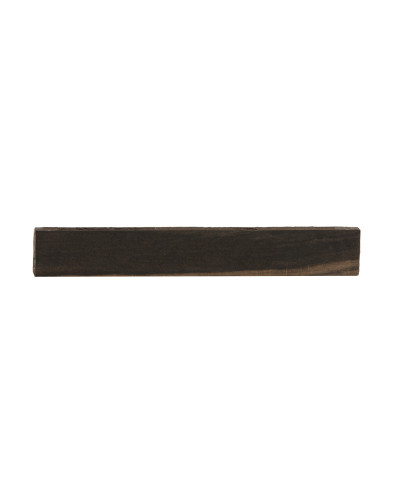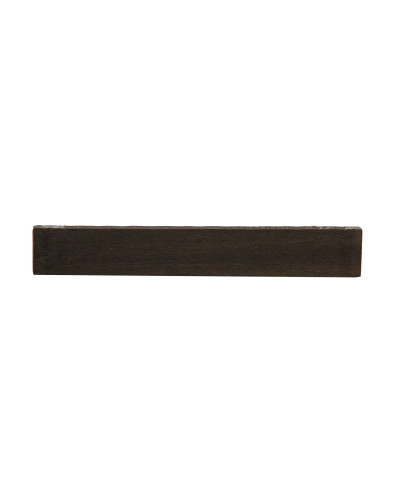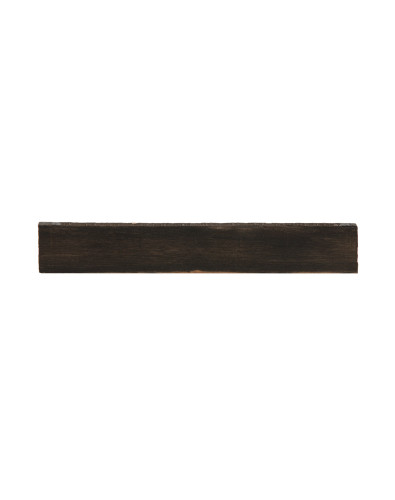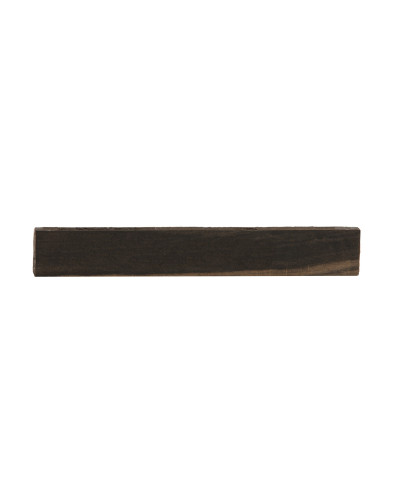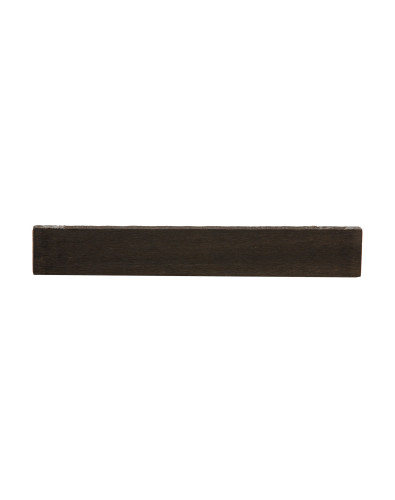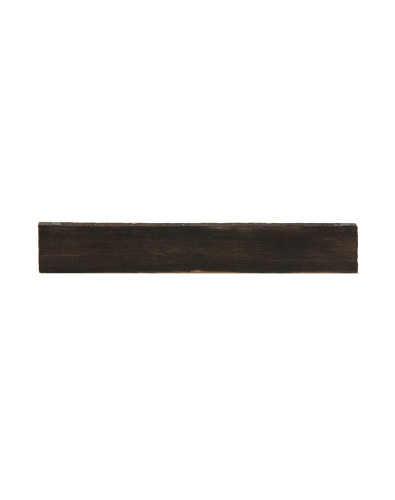African Ebony
Although bridge is not one of the most visible parts of the classic guitar, it is one of the elements with a bigger influence on the final sound of the instrument, because it is one of the support point of the strings.
For this part of the instrument, African Ebony is one of the most used woods thanks to its great balance between quality, sound and resistance. Besides, it has a great sound response and great resistance to wear and frictions.
Try these dynamic and different African Ebony bridges of Maderas Barber which will give a brilliant touch to your classic guitar.
BOTANIC NAME: Diospyros crassiflora hiern.
COMMON NAMES: African Ebony, Black Ebony.
ORIGIN: Central and Western Africa.
DESCRIPTION: Density 1030-1050 Kg/m3. Sapwood is light colour and hardwood is jet-black.
Occasionally dark brown or greyish-brown streaks may be present. Grain is usually straight but can also be interlocked. Fine even texture with very high natural luster.
RECOMMENDATIONS: Easy sawing but can be difficult to work due to its extremely high density. Has a dulling effect on cutters. Tear out may occur on pieces that have interlocked or irregular grain. Due to the high oil content found in this wood, it can occasionally cause problems with gluing. Finishes well, and polishes to a high luster. Responds well to steam bending.
DRYING: Drying process speed can vary from normal to low speed. Tendency to split.
USES: Fingerboards. Wind instruments.

